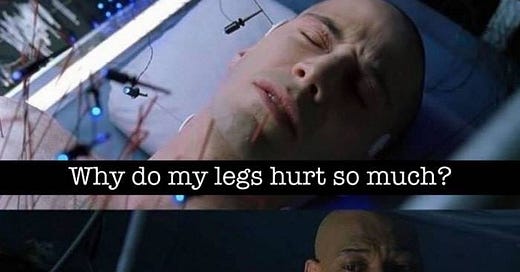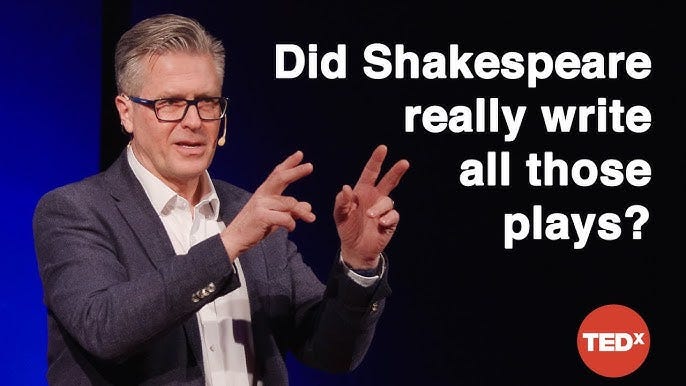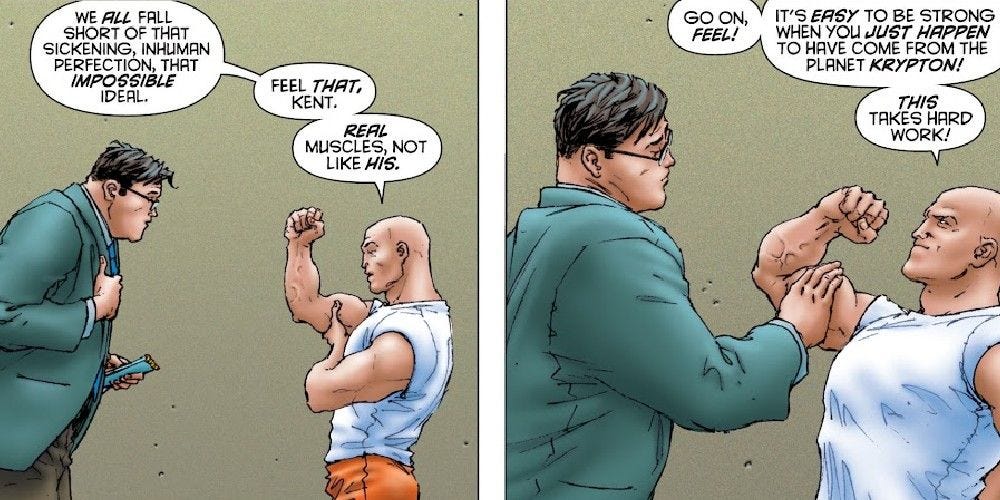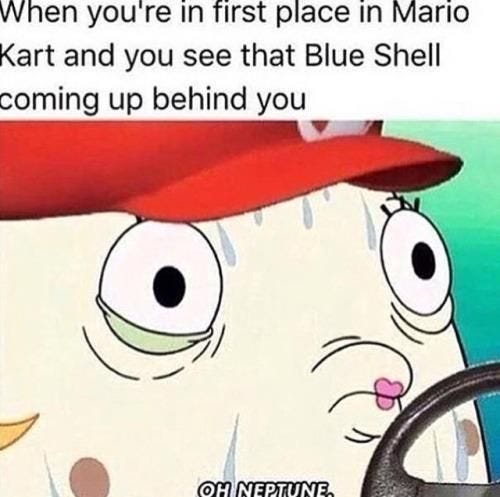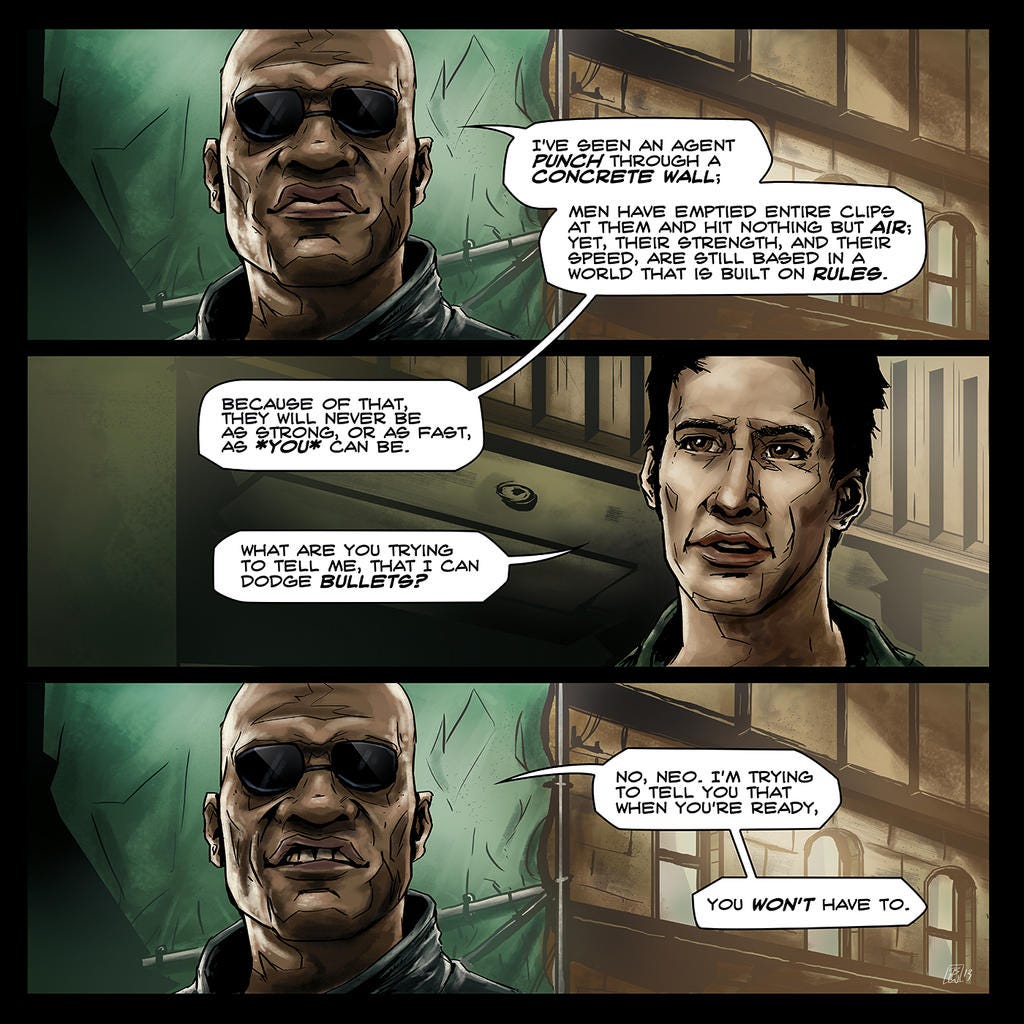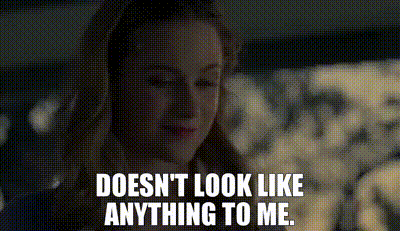Yes, you can get better at writing
Elitism vs abundance, game writing, and the battle for the soul
Today, I'm going to be talking about the fundamentals of writing improvement. I'll be discussing myths of innate talent, the history of elitism, mistakes many people make in approaching craft development, the difference between AI and human beings, the nature of writing itself, and more. At the end, I talk about how a particular style of thinking can bolster and empower the aspiring and improving writer in their path.
I say these things as someone who has improved a great deal at writing throughout the years not only in self-taught analysis of my own work and that of others, but attending workshops at UEA, the NFTS, and other institutions. Beyond writing practice, I even pursued an academic literary analysis path directly with a BA, M.Phil, and PhD + peer reviewed publication. Even after all this; award-winning bestselling works in video games and fiction novels; and running my own game writing workshops, I believe one of my core strengths is my hunger to become better and to learn more about this craft. If every project doesn’t force you to reinvent even a small portion of the wheel, you aren’t doing it right — and why would you want it any other way?
To love writing is to love making wheels, because how else do we all implicitly talk about stories? “Backstory”, “momentum”, “pace”, “flash forward”, “callback” — even the word “plot” is not just to consider the forming of ideas, but to plot a route. The trial of mastery involves pleasures that the audience can never have, because this story can never end. It is eternal — and I believe here lies not only the greatest encouragement possible to new and aspiring writers, but the greatest psychological threat to those who believe they have already learned all they can, and for those who might be so intimidated by the idea of an endless road that they never even step foot beyond their own front door.
So, let us begin.
Can you learn to be a better writer?
There was a quote I read recently suggesting that game writing would be one of the few human cognitive activities you couldn't get better at, were it to be said that you can't improve at writing. Indeed, this notion appears frequently both in wider culture and among professionals themselves. There's a kind of pseudo-mysticism in the way we talk about these things that positions writing as a purely instinctual activity -- and this represents not only an elitist attitude but one that, like much elitism, contains essentially unconscious class, social, and economic biases.
This systematic bias manifests most clearly in the world of novel publishing, where writers who have received a classical education are assumed to inherently understand the uses of language, historical devices, and the literary canon they've absorbed throughout their work and reading. When writers emerge from less educated backgrounds or institutions, they're often oddly fetishized by the industry as representatives of a particular place or class, yet seem restricted to a niche where they're only permitted to write about their original class or area. This dynamic reveals how the industry values them primarily for their difference, transforming what should have been a positive intent of ensuring diverse voices are heard into a weaponized version of that same intent.
The persistence of class-based gatekeeping in writing --combined with a paradoxical anti-intellectualism-- stretches as far back as Shakespeare, where theories persist that the writer of his works wasn't really the historical William Shakespeare, but figures such as Marlowe or others with more aristocratic and educated connections. While people naturally love a good conspiracy theory, what's really happening here is a deep-seated surprise that someone who wasn't a noble could have produced such work. All the theories about who might really have written those works point to people who would more plausibly "deserve" that category.
Even if you separate industry selection practices from other concerns, there's an undeniable logic to why people from privileged backgrounds succeed: they not only have the safety net and likely connections, performing appropriately when called upon, but they may literally have had greater exposure to certain artistic works, training them more naturally to understand them. There is no birthright at play in the sense of genius, but what researchers term a "head start". Those in this position are likely to perceive this mixture of social advantage and education as somehow innate, when really, like much gut instinct, it's a combination of conditions that led to that point. To be made aware of the lack of being special in this sense is likely to be threatening to such individuals, when it really does not have to be: you're still great at writing! You just aren't from the planet Krypton.
Story Structure
At its core, part of human ingenuity and artistic production lies in our ability to systematize and repeat patterns once we recognize them -- this is fundamentally what learning is. Yet there's a prevalent snobbery about those who seek to learn writing, both among many practitioners and the public. I find this attitude appalling. Psychology would call this a 'fixed mindset', and it means you are likely to be far less capable and powerful in your ability to absorb new information than those who adopt a growth mindset. In many contexts, I've been genuinely surprised at how little many writers want to discuss writing or seem interested in genuinely examining the craft. Reference to story structures and models such as the Hero's Journey, the Story Circle, Save the Cat, and more are seen as derisory and worthy of mockery when --particularly for emerging writers-- these can be useful analytical tools if properly explained with their limitations made clear.
For hundreds of years Aristotle and Hegel have provided lenses that are incredibly useful for critics and writers alike. Major novelists have both attended and run workshops and acted as teachers frequently, with many viewing it as a core part of their own practice as well as passing on their skills. Yet we conveniently overlook how novel prize winners such as Kazuo Ishiguro emerged from such an environment, or how authors like Ursula LeGuin, Jeff Vandermeer and Chuck Palanhuik have dedicated a great deal of time to spreading their knowledge.
It's convenient to ignore that when we see people daring to try and steal fire from the gods, to remember that they are not gods at all (sorry, everyone!) and indeed the fire was not only freely given, but that humankind was always capable of making fire itself if given the right guidance or set of circumstances. "Deliberate practice" is the improving of technique and skills through choice and iteration, and it's such a paradigm shift to realise that you already have the basic constituent parts of these things to improve within yourself.
What is writing, but the passing on of memories synthetic or real, and the making of choices for the imaginary people we create, engaging in that same cause-and-effect strategising we perform consciously and unconsciously every moment of every day?
Artificial Intelligence and Demonic Tricks
This view of writing is something that is impossible for AI to ever truly replicate -- the presence of an author, a person with a lived experience and genuine solidarity with their audience, remains fundamental to our understanding of what stories truly are as those who enjoy them. The act requires -storytellers-. This paradigm is so deeply key to the cultural ritual of consuming narrative that its dissolution would require a huge change, and while many fields are doing their best to achieve this shift (game studios that leave writers uncredited or downplay their involvement for example), it is still other humans doing the downplaying, wanting that position of 'teller' for themselves.
Descartes talks of how we can ever know anything exists for real -- what if a demon fooled us into believing a whole world of lies? How could we ever have faith in a single thing? The wonder of his argument is that the phrasing itself reveals the answer: fooled _us_, how _we_ could have faith. Whether we can trust the world or not, there is someone who has to trust, someone who is fooled or not fooled. This is what leads to Descartes' proof of the most fundamental facet of knowledge: cogito ergo sum. I think therefore I am. It stands as a proof of storytelling in an age of such demons. A story is the mediated experience of a human being. An automaton's attempt at the same thing may be fascinating and enjoyable, but any awareness of their being the cause of such a story transforms it in such a way that it is no longer a story, but a curiosity, a trick, like a machine playing a piano, not a musician.
Writing is learned by writing
In thinking about what's lost in the involvement of such machines as primary creators of what we might call unstories, we must ask what capitalistic thinking does to our view of game writing and craft, if we view any attempt to improve and follow _structures_ and prompts as some kind of improper betrayal of the writer-who-is-born, rather than the writer who seeks to be a better writer from outside sources. It's fascinating how so many have talked about learning processes as 'mechanical'. This not only ignores that 'learning by doing' is almost universally linked to high-level performance across human endeavour, but the word choice itself is significant. Considering that AI prompts work in vaguely similar ways, do X, get Y result, it shows a view of people who improve and analyse as no better than word machines. It's derogatory. For those who have used AI for any tasks, they get better results for expert purposes if they are highly specific in structured ways, giving examples of ideal performance at that task in order to complete it according to their intention. But this isn't what we should always do when teaching writing, nor should we seek such lack of challenge. The error lies in viewing the whole process as a set of instructions rather than as _considerations_ and models that need to be loosely held and experimented with.
In my own Interactive Narrative Workshop (where participants build and test their own game throughout the course), I've seen first-hand how quickly new writers transform once they realize writing can be actively practiced and refined in practice and feedback loops. It's a matter of paradigm shift more than it is knowledge -- something that surprises those who expect a 101 in the very basics of writing technique at the start. In the years I've been running this, I've proved that there is surprisingly little automatic correlation between the amount of grounding and theory and practice someone has in writing VS their performance and achievement in the course. Because this is not the kind of activity you learn theoretically -- you learn by _doing_, and any theory or modelling of the process is ideally provided alongside. The paradox for teachers is that the more guidance and examples you provide for writing processes, the more dependent people can become on the framework of that guidance, yet paradoxically, attempts to handle things differently can be confusing for students who may never have faced such a teaching approach.
Imagine it more like learning to drive a car: were you to spend a huge amount of time understanding every single aspect of how the machine worked in advance, it is highly likely that you would experience cognitive overload in trying to find salience for all of those hypotheticals when you're actually on the road requiring instinctual and fast acting responses. Although the knowledge of how a car works in-depth can indeed inform our process in driving, it makes sense to introduce this iteratively as needed. One day, you're no longer manually step by step remembering what you need to do with your brake, your gear, your positioning and speed at certain points on the road. You aren't 'controlling the car as it travels to another town' anymore in your conceptual relationship to the learned process. You say 'I went to the city today', not 'I steered and pressed pedals and navigated my car and the car rolled on to the city bringing me with it'.
This is the road to mastery, and it has a revealing side effect -- so many forget that they did in many ways learn to drive those cars. Professionals -- in this sense akin to those who drive not as a hobby but for a living -- are so far removed from the origins of this that they struggle to sympathise and understand the position of those who have not yet rendered the skills second-nature. They may not have been aware that all those literature lessons at school, all the texts they read, all the things they played, all of this fed into their growth. It was perhaps not birth or a predetermined fate from the stars that led them to be able to write well, but the way they were taught to view things even in analogous fields, a different kind of mystical chance -- the chaos of what happened to you all these years, the randomness of where you were born colliding with the uncertain, unpredictable nature of how each person will respond to such circumstances. Any 'innate talent' is likely bootstrapped into existence, because who is born as a natural at an activity like the manipulation of a genre and story and language?
Humanity is older even than language.
The genres we are supposedly born with the ability to weave, have in some cases only existed for fifty years or less.
So how can it be innate?
How can this possibly be anything other than the iterative process of the human race remembering and teaching and striving?
A Flotilla of Travelling Go-Karts
Just as many view aspiring writers as having no hope of improving their skills, there are those for whom the idea of improving skills feels threatening at a deep emotional and cognitive level. To admit the need to improve is to admit that there would be a need for growing pains, to admit that failure is somehow possible, perhaps even to admit that you are not ready for throwing CVs at job openings despite no experience and no finished written games.
This might be something many cannot contemplate -- but think about the places you are trying to work. Think about the nature of game studios. I've worked for over 20+ games across AAA, indie, VR, mobile, you name it -- even a pretty popular Alexa voice-only game! -- and have been involved in everything from post-launch revamp (No Man's Sky) to crafting TTRPG spin-offs.
If you think about what I said about driving cars being like writing -- imagine that studios can sometimes be like a go kart arena or like going on dodgems. Everyone is speeding and hitting each other and going in directions that do not always make sense, though everyone has the same aim to have fun, and it's _their_ go kart arena. Now! Of course things are not always like this, things are usually great, but I think this description would likely apply to any professional environment and projects involving lots of people -- what else are producers and managers for, and what else would you even want from a creative process than the fun and collision of ideas and passions? But what it does mean, sometimes, is that the writer has been called because one day the go karts have decided they need to go somewhere, and they've hired a giant truck to take them all to the new destination. This requires great trust in the truck and collaboration to make sure you're all going where you want to go in the way you want to go -- and maybe sometimes there already are trucks among them, but just too many karts to do it by themselves.
And imagine that --
(Interruption)
Why would they want someone who has not passed their driving test?
This is a bleak question to ask, but ask it. Why would this be good for anyone? Why would they risk their journey and themselves when there are great trucks out there with lots of experience doing this, VS someone who might have potential? And how would you cope with all the requests and all that trust, if you have no idea how the different parts of your process fit together, if you're still struggling to keep your engine going, if you keep breaking down and panicking?
It would be far kinder to yourself to do what you presumably wanted to do all along -- write first. Write, and write well, and learn well, and then go for more later -- when you've passed a milestone of simply having a game out there that's longer than 15 minutes and which you think is great and which you got some people talking about. Don't debut too early, or you'll get caught in the pain of having to step back.
Be a Bestseller! And other brainworms
The investment that many have in viewing writing as an ineffable process rather than a learnable set of skills is actively undermined by how economically focused many institutions and resources have become in their proposed benefits -- emphasizing getting rich quick through storytelling or focusing primarily on publishing success or job acquisition -- and how even brilliant sources of advice are often marketed with words like 'Bestseller!' in the title. Established writers will often not really view themselves as having developed their skills for such base objectives (even if they currently benefit economically) because in many cases, they didn't pursue writing with that framing themselves, and so either it sullies their own view of their craft and they reject it as alien, or they believe others are being deceived into false promises. Even though promising outcomes is indeed suspect and unhelpful, this doesn't necessarily invalidate the actual content beneath them -- the promise of career may be impossible to make, but the content may still be valuable to help improvement as a writer.
While there's a relationship between succeeding in a field professionally and increasing one's skills, it's not a relationship that can be truly promised, and in many ways, this focus compromises the fundamental learning situation in a way that's very unhelpful for the cognitive and emotional dynamic that both learners and teachers must navigate together. It suggests that the learning experience is a kind of black box of hidden processes and secrets, transforming the old snobbery about ineffable born-to-write mastery into 'this one secret that game writers don't want you to know!' But I would really encourage everyone, whether they're professional or not, to view their engagement with craft and self-improvement as more than just this, because _you_ are more than just these elements. And even if the driver to succeed economically is a powerful or urgent force in so many of our lives, _even then_ it is unhelpful to focus upon.
There is a parallel here with an aspect of therapy (and isn't all writing a form of therapy, in the end?) A significant insight I've gained through the process of my own therapy is understanding that when I feel depressed or angry or have particular issues with a situation, focusing on trying to eliminate the feeling becomes counterproductive. Paradoxically, accepting the feeling is far more likely to resolve it. But this acceptance must be sincere -- you can't take the cognitive, behavioural, and emotional steps necessary if you are just concentrating upon how this acceptance could be used for its own opposite purposes. You aren't really letting go of the idea of changing something so deeply-felt if you have it in your head that you are doing this for that precise purpose.
The parallel between this process of emotional acceptance and what we face in improving as writers is this: we often have multi-factorial goals in different areas, because we are complicated luminous beings who also like buying stuff and people praising us. A sincere wish to learn the craft of writing can be drowned in a sea of exterior concerns, of putting 'the cart before the horse', of 'getting ahead of yourself'. Learning and deliberate practice requires presence in the moment and a letting go of the seductive dream of potential rewards. For those familiar with RTS or base building town management games, you have to build structures to advance through tech trees and generate your resource gathering loops in order to then later mount your armies and make attacks. If you were to proceed in those early stages in some games while having 95% of your brain consumed by thoughts of attacking enemy factions, you would likely be distracted from the specific nature of the task you're trying to fulfill, even if this military purpose is the ultimate goal. The process of learning writing demands similar focused attention to fundamentals and each stage of the process without jumping ahead.
Any job worth doing is worth doing well
The problem is that aspiring and self-improving writers are therefore not only vulnerable to threats from without (the idea that improvement is mysterious and ineffable and not learnable by mere mortals) but from within. Long-term planning? The acceptance that it can take considerable time to achieve your goals through painstaking practice and self-directed discipline? These are not popular or desirable processes for many people, and may indeed be even more difficult if people have never been taught how to learn.
I've been part of a lot of writing workshops and indeed other craft classes, such as acting lessons, despite having no professional ambitions in those areas and just doing it for fun. I know the temptation of wanting the course to just validate you and make you feel good about yourself -- that you are the unique exception who did not need to do the work after all, but that now having had this contact, you will be propelled into the recognition you have long deserved. I've seen this in myself sometimes in writing classes, and I've seen it in others in craft classes even more clearly, not sharing that sense of ambition myself. Although this is all deeply human, it is not helpful if we consider that so many factors are already arrayed against us in believing that writing skills can be improved and learned and iterated upon. The idea of a workshop that just makes you feel good about yourself should be anathema and a waste of time and effort -- why seek learning, unless you accept that you have something to learn? And to accept you have something to learn is to accept you have _a process to follow_ that may be difficult, but this is the price for caring about the activity itself.
The Greek value of 'arete', of excellence in all activities -- this is what we should aspire for in our craft, because why are we doing this in our lives, spending our time at work or in leisure or both, unless we love it? And to love a thing is to care for it and nurture it, to care about it in itself, not just hoard and control it like a trophy or status symbol, to not just value it for 'what it does for you', but for what it is in itself. 'The mind is its own place, and can make a heaven of hell, or a hell of heaven' -- What can possibly diminish your sense of yourself as a writer, if it is built into that self that the art itself and improvement and sharing is the goal, that jobs and prestige are not prerequisites for engaging in the activity, that the lie we've told for hundreds of years is not true?
I see this so often in game writing discussions, especially on LinkedIn. I'll do posts saying things to the explicit effect of 'write a game, ignore all other questions about breaking in until you've just written a game, here is specifically how to do this, with a tool I made to show you in depth for free' -- and the replies will be full of people systematically ignoring all this and asking if their novel or work in other fields is enough to get in to game writing, or how to leverage particular other pursuits. I see it in people who pursue CVs over and over again for every job opportunity listed despite never having worked in games and never having written an actual released game that they are happy with. This is true more than ever now that the job market is more limited and flooded with experienced writers, but it was always true -- why should someone hire you, when you have such apparent aversion to the fundamental activity you wish to perform at a professional level?
Breaking Free from Magical Thinking
Unfortunately, in these ways and more, so many discussions of 'becoming writers' often become another version of the mystical and spiritual attitudes that frequently surround writing teaching and writing processes -- the persistent idea that we will somehow magically improve just by having afforded the course, sought the right advice, or obtained the right key from the right person at the right time. I'm repeating this because so many people see this and view it as the equivalent of Dolores viewing the photograph in the first season of Westworld, their minds programmed like her to not be able to interpret or notice evidence contrary to their illusory world view: 'This doesn't look like anything to me'.
If you care about writing, even if it hurts to make this shift, you have to escape this magical thinking, because that's what it is -- the removal of the pressure to do what anyone must do when trying to learn and appreciate something: actually put in the work. Again -- Improving at writing isn't the kind of high school science-based knowledge where you're trying to remember certain facts -- it's a craft that demands both understanding and dedicated practice, and no amount of wishful thinking can circumvent this fundamental truth.
There are four concepts that are fundamentally relevant for so much of this -- Abundance, Scarcity, and two more I'm going to explore in my next article. Though originating from totally different disciplines, they overlap in profound ways and have analogies from neuroscience to psychology to game theory.
Abundance thinking is the mindset where you focus upon what you have and what your strengths are, proceeding from the position of viewing yourself as _having_. Scarcity mindset is what you engage in if you are proceeding defensively, aiming to guard and preserve your depleted reserves and survive. This distinction shapes not just how we approach our resources, but how we view our very capacity for growth.
Human beings have a bias towards noticing, weighting, and remembering the negative, not the positive -- a tendency that modern psychology has begun to systematically address through practices such as 'gratitude journalling' and its more specific sub variant: 'end every day by stating 3 things that you are grateful for that day about things you did or that you were associated with, and explain why they make you feel this way'. Even this simple practice helps adjust your mind to try to remember and prize the good even more. What does this do? It demonstrably reduces depression and a bunch of negative mental health effects in those who engage in it.
Such mindsets hold some potential answers as to why gratitude can help us perform better in our tasks. Some attribute mystical or magical aspects to these practices, but it's unnecessary: neuroscientifically and even just logically, it makes sense. In terms of cognitive and emotional load, people who are distressed behave less optimally and less strategically than people who believe themselves to be strong and confident. I dislike the idea of empty positive thinking -- remember, we need to accept the negative. But accepting the negative while trying to find the most optimal form of an abundance mindset on that negative that's possible, that you can sincerely sign up to? The very act of trying to honestly engage with it is transformative in itself.
Examples in life and writing
As an example, no-one is going to view debt as a good thing. But to consider "I am grateful that I have what I have (my possessions/the wellbeing that brought me/my health/etc) as a result of that debt, earlier than I would have had it otherwise" -- this reframing is not denying the debt's negative effects, but it is a position that's likely to lead to a degree of self-forgiveness and self-trust that is crucial in reducing anxiety and enabling forward progress.
"I have so many ways I have to improve as a writer, why is there this much feedback on changes?! I worked so hard!" --> "So many have no clarity about how to improve their work, and I really value my work being good, so I'm glad I'm so clear about the specific steps I would need to take."
"I have no time to make changes or learn my craft, I need a job and need to spend hours applying instead, it will be way faster and I don't have to do a difficult process like making my own game, they'll teach me on the job" --> "I have so much time I've been spending applying for jobs, this is great because it's helped prove to me that I still have things to explore in order to be more likely to succeed at this, AND that I have a lot of time to devote to my writing as a whole if the professional aspect is able to have this much. I have so much time, in fact, that 10/20/30 minutes a day feels easily achievable to do something towards my craft improvement, and I feel good for valuing my actual potential and imagining I can deal with the challenges in this"
The Logic of Abundance
These examples take very negative ways of viewing two common aspiring writer scenarios. They state and reverse those scarcity mindsets without denying fundamental truths -- that jobs are hard to get, that changes are difficult to make. Instead, they use the scarcity mindset's own logic against itself (i.e., 'I have no time to do x, but I need to spend a lot of time doing y!' becomes 'Clearly, I do have time available to allocate'). The negative thoughts aren't dismissed; rather, the final position honors them while drawing the most reasonable conclusions about your own capabilities that you can logically infer.
I have found this style of thinking incredibly useful at making me feel safe enough and having self-trust enough to avoid short-term disaster-driven thinking. Instead, I can engage in the higher-level thinking required to truly enjoy my life as a writer and feed my attempts to develop further and understand more about how all of this works. This is _not_ easy, especially in juggling the demands of real pressures and real problems, but it _is_ easy to forget abundance, precisely because your brain is evolutionarily compromised to automatically focus on how little you have or how many threats you are facing. This is not arrogance or wishful positive thinking: it is a fightback and a fixing of this balance, an act of self-care to not say "I am enough, I don't need or have the time to learn or improve", but to say "I am enough, and because I am enough and have so much within me, I relish the opportunity to improve." It is a neural circuit-breaker, protecting us from our own worst impulses.
Ultimately this is not just something aspiring writers would benefit from, but any writer -- whether it's trying a free tool, getting a book about the craft, studying with others, or attending real-life writing groups, or even just rigorously analysing and thinking about how other writers have handled various styles and topics in their own work -- there is no limit to anyone's ability to consider if they could be something more than what they currently are. We shouldn't just avoid putting down the ability of others to achieve what they want to achieve; we should avoid putting ourselves down, to imagine _we_ can't be better than we are.
Despair was a sin of pride, back in the day, because to despair is to believe that no-one can save you, that your actions have been so great that even God could not change you, should you believe in a God.
What are we to do, when fire is taken from mountains, when we realize we can make the fire ourselves, than to engage in an ultimate reversal of that sin? To have such pride that the pride is not wounded by the attempt to get better and seek knowledge -- because we have so much, we are so unassailable, that we can save ourselves and always could. We can do the work, we can value this, we can do this.
So --
Don't write yourself off.


